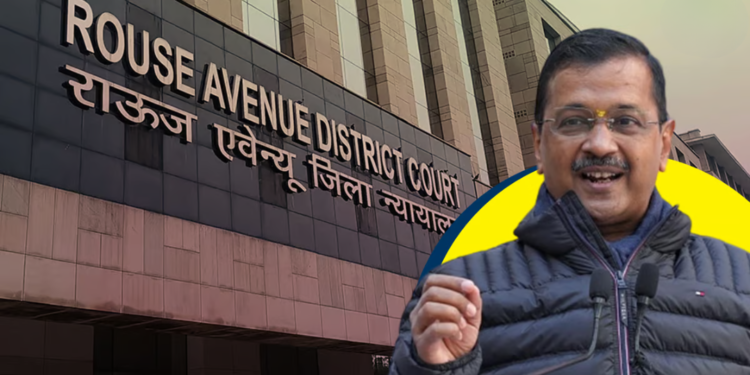A Delhi court on Saturday sent Delhi Chief Minister Arvind Kejriwal to judicial custody until July 12 in a corruption case related to the now-scrapped Delhi Excise Policy of 2021-22, following the end of his three-day custody with the Central Bureau of Investigation (CBI).
Vacation Judge Sunena Sharma of Rouse Avenue Courts issued the order after the CBI did not seek an extension of Kejriwal’s custody.
The court has allowed Kejriwal to appear via video conferencing at the next hearing, at his request, instead of being produced in person.
The CBI requested that Kejriwal be sent to 14 days of judicial custody, arguing that he is an influential politician who could tamper with evidence and influence witnesses if not kept in custody.
Despite claiming that Kejriwal has been evasive and untruthful in answering questions, the CBI stated that further custodial interrogation was not necessary at this time.
Kejriwal was arrested by the CBI on June 26 while already in judicial custody in connection with a money laundering case registered by the Enforcement Directorate (ED). Both the ED and CBI cases concern an alleged scam involved in drafting the Delhi Excise Policy of 2021-22.
Kejriwal was granted bail by the trial court in the ED case on June 20. However, the Delhi High Court issued an interim stay on the grant of bail the following day after the ED filed an urgent plea. The stay on the bail order was confirmed by the Delhi High Court on June 25. Following this, Kejriwal was arrested by the CBI on June 26 and remanded to CBI custody until June 29.
In court, Senior Advocate Vikram Chaudhari questioned whether there was any material to justify Kejriwal’s remand at all. He argued that the CBI should present evidence to justify Kejriwal’s arrest on June 26 and stated that without such evidence, the remand proceeding would be illegal.
CBI counsel, Advocate DP Singh, countered that an application opposing judicial custody was not maintainable under Section 172 of the Criminal Procedure Code (CrPC).
Judge Sharma suggested that Kejriwal should file a bail application instead. The judge also noted that the material collected by the CBI could not be disclosed to the accused but assured that the court would ensure the necessity of the remand.
Chaudhari clarified that he was not seeking access to the case diary but urged the court to review it. He also suggested that the court keep a record of the CBI’s statements during hearings to hold the agency accountable.
Kejriwal was first arrested by the ED on March 21, 2024, in the money laundering case linked to the alleged Delhi excise policy scam. He is accused of being a key conspirator in a plot to intentionally leave loopholes in the liquor policy to benefit certain liquor sellers. The ED alleges that kickbacks received from these loopholes were used by the Aam Aadmi Party (AAP) to fund its elections in Goa.
Both the CBI and ED cases against Kejriwal stem from a complaint filed by Delhi Lieutenant Governor VK Saxena.

















